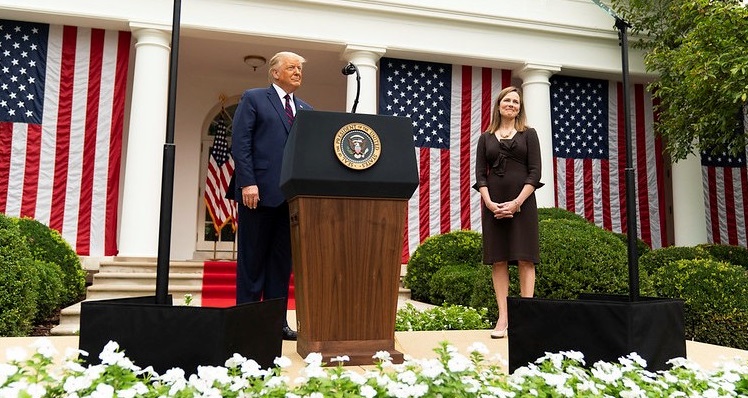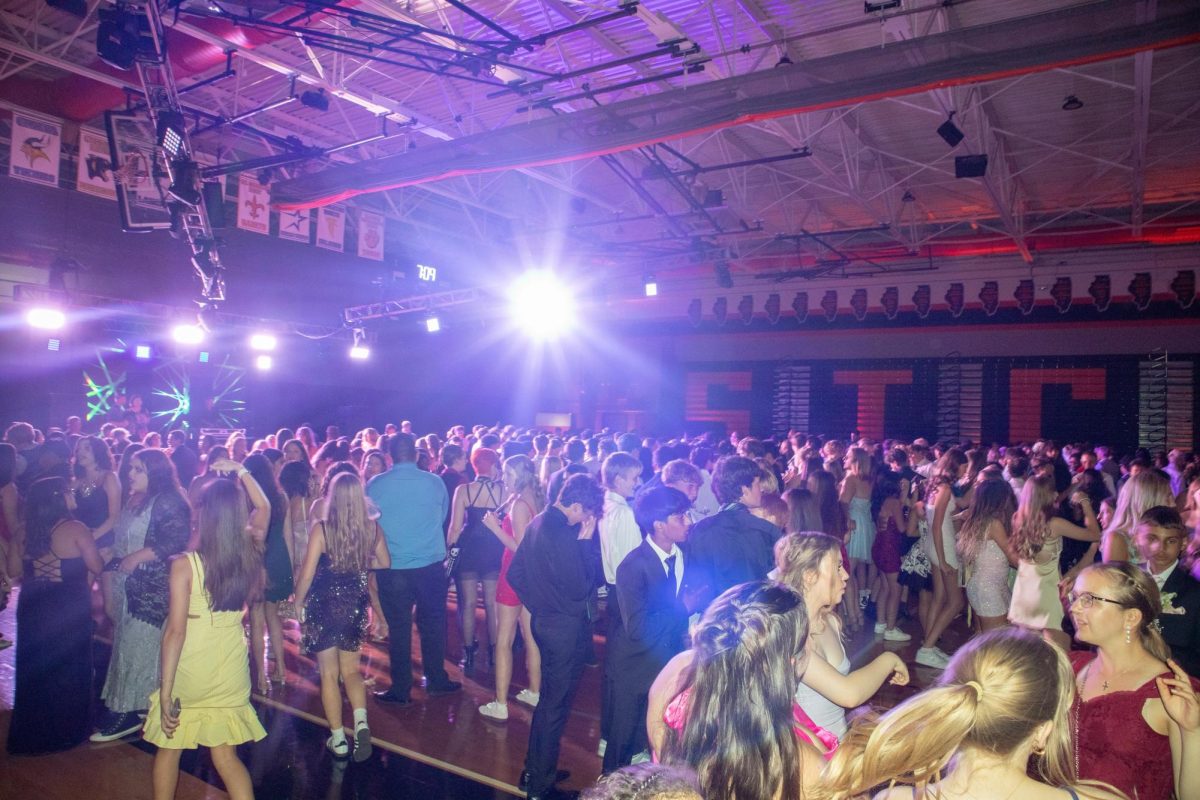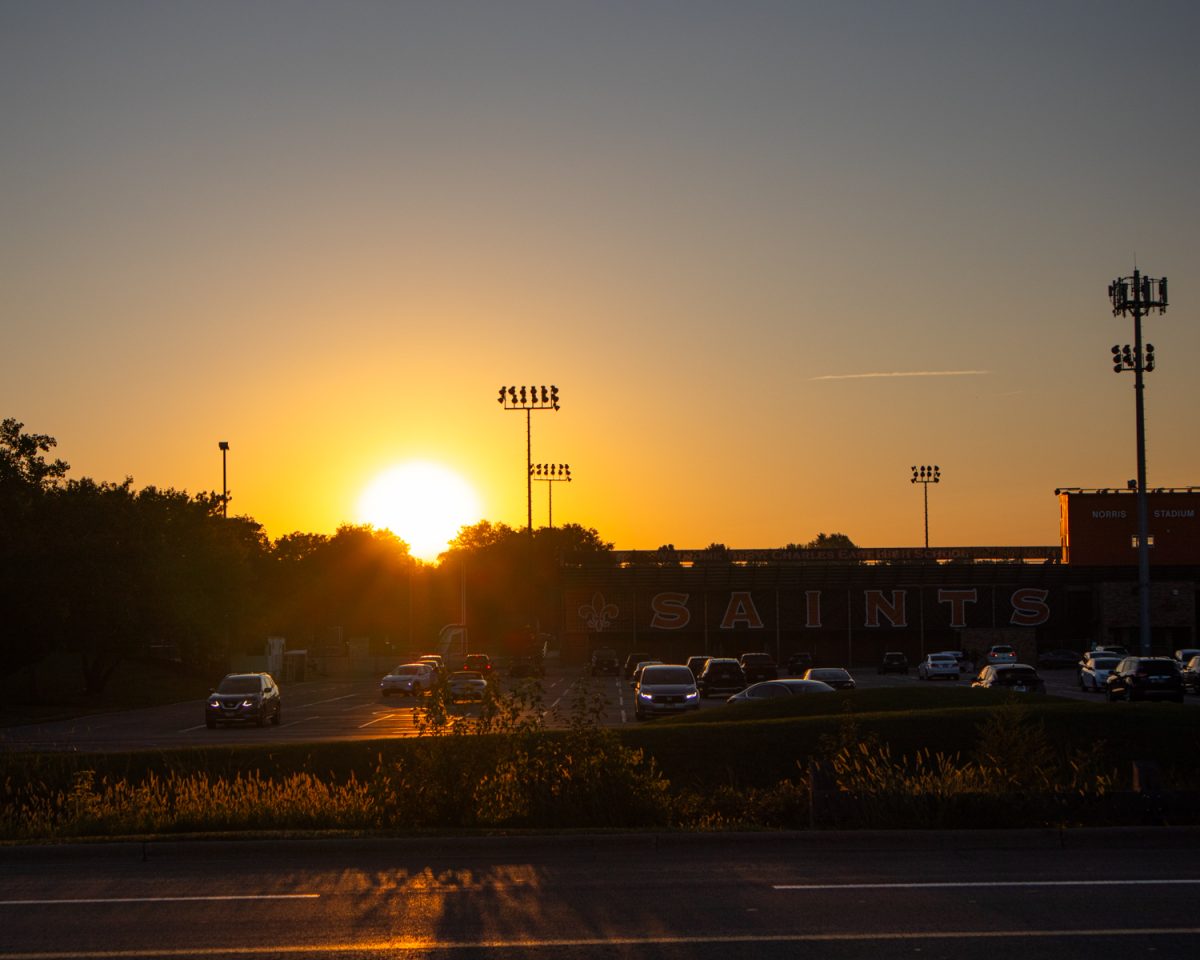The death of Justice Ruth Bader Ginsburg on September 18 left a seat open on the United States Supreme Court. President Donald Trump nominated the U.S. Court of Appeals’ Seventh Circuit Judge, Amy Coney Barrett, for the position. This nomination sparked controversy across the country, particularly due to the proximity of the November 3rd presidential election. On October 26, Barrett was confirmed by the Senate as the new Justice.
Barrett is originally from New Orleans, Louisiana, and attended Rhodes College. She studied law at Notre Dame Law School, where she graduated first in her class and later worked as a professor.
Barrett is known for her conservative views, which is the root of much of the controversy surrounding her September 26th nomination. Jonathan Turley, a professor of law at George Washington University, describes her as “unabashedly conservative.”
Barrett went through four days of questioning by the Senate Judiciary Committee to confirm her nomination for the position of Supreme Court Justice. This panel asked Barrett a wide variety of questions on her past rulings, political views, and personal interpretation of the Constitution.
Barrett offered a direct defense of her stance as an originalist during the hearing. “I interpret the Constitution as a law … I interpret its text as text,” she said. “I understand it to have the meaning that it had at the time people ratified it. So that meaning doesn’t change over time, and it isn’t up to me to update or infuse my own policy views into it.”
Barrett’s position as an “originalist” regarding the Constitution is just one of the reasons she is so controversial. Another is her position on abortion. According to Turley, “Judge Barrett did not hide her personal pro-life views” throughout the hearing, particularly when asked about her views on Roe vs Wade as a super-precedential case. Barrett said that she thinks “Roe doesn’t fall into that category [of a super-precedent]”, which means she believes the ruling could be subject to future re-evaluation.
With the November 3rd presidential election just weeks away, there was increased pressure from the Republican party for Barrett to join the Court. With only 8 sitting Justices, the Court had potential for a 4-4 decision, which could have created complications in the event of a contested election or any post-election disputes.
The Court showed its current potential for this 4-4 court on October 19, when they split in this manner regarding a Pennsylvania dispute about mail-in voting. With Barrett, there is now an odd number of justices, and this possibility for a tie disappears.
The controversy over Barrett’s nomination this close to Election Day is not isolated to Washington. Here at East, many students have strong opinions regarding Barrett.
Addy Petrine, Junior, is one of these students. Petrine said that she believes “the country is in trouble depending on who gets appointed as the next Justice.”
“Amy Coney Barrett is an extremely conservative woman,” Petrine said, “[She] would push the Republican majority over the line. She is against legal and safe abortions, refused to answer questions regarding the transfer of power in the upcoming election, and is against LGBTQ rights.” Barrett’s stance on all of these topics was extremely concerning to Petrine.
She said that she is “worried that rights for [her] friends and [herself] will be taken away” now that Barrett has been confirmed as a Justice and changed the Supreme Court majority.
Samay Verma, also a junior, has a different opinion than Petrine. Verma feels that “with the change in the Supreme Court, a more fair America will flourish.”
Verma says that Barrett will make “more rulings in favor of the founding ideals of our founding fathers.” He said he supports how Barrett “will never give a ruling based on anything but evidence and the Constitution.”
The Senate Judiciary Committee approved Barrett’s nomination on Thursday, October 22. The full Senate voted to confirm her seat in the Court on October 26 with a simple majority of 52-48.
Barrett will now take part in rulings on the Supreme Court prior to the November election. She will join the Court under Chief Justice John Roberts, along with Associate Justices Thomas, Breyer, Alito, Sotomayer, Kagan, Gorsuch, and Kavanaugh. One case regarding the Affordable Care Act is scheduled for November 10.









